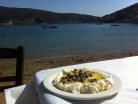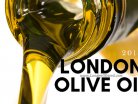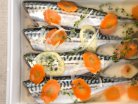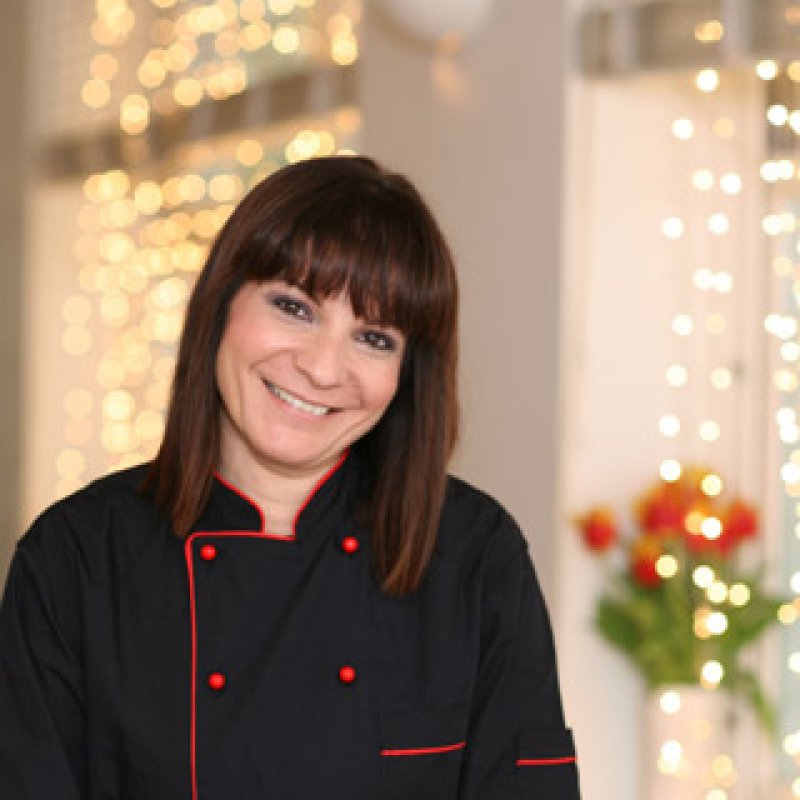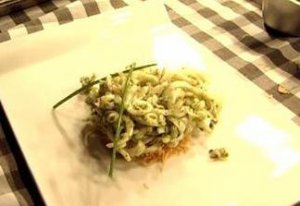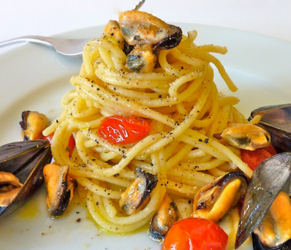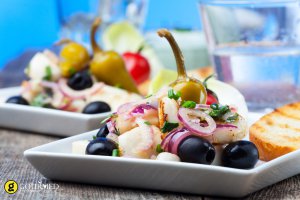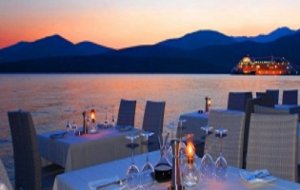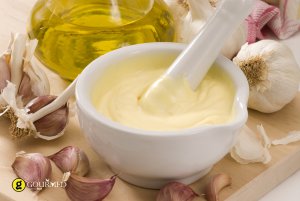Do Greek chefs respect Greek gastronomic tradition, and did Greek cuisine become common knowledge, before it became an object of experimentation?
In the last 4 or 5 years, chefs have been doing a good job. And Greek cuisine is just “twisted” as much as it should be. You now hear things like 'farm duck with vinaigrette sauce'.
According to recent research, Greece don’t stop going out for dinner, even during periods of financial difficulty. But some have to make cheap choices. Is it possible to cut the cost of high quality restaurants without loosing the quality?
Greeks are born and die “on a table”. Their joys and sorrows, births and deaths, are “celebrated” with a meal. I think that this practice is a fundamental part of Greek civilization and not a habit you can quit. And it is also a characteristic that differentiates us from other nations. About costs, when you choose the best possible raw materials, there is no way to cut from prices. When you serve the best tomato, then it’s automatically the most expensive too. Let’s calculate the losses too… What I’d suggest is that people should go out once a week and not four. I’ll never forget the magnificent avgotaracho soup that I had in "Per Se" in New York. It’s the value for money that counts. I’ve paid €30 and regretted it, but I have paid €250 and was glad.
The Greek olive oil production is almost double the consumption, but its high cost makes it difficult to be used. The use of olive oil is constrained even in quality restaurants. Is it possible to use olive oil in all dishes?
And what do they use? I can’t even think of not using olive oil in my cuisine. And you don’t have to use it a lot. In lentils for example, you’ll add olive oil in the end, and not when you start cooking, because you will burn it for too long. But you can’t replace it with anything else. I can’t replace olive oil in my cooking and butter in my pastry.
Does a chef's acknowledgement come through successful entrepreneurship?
Acknowledgment comes with time. A chef may open a restaurant and for three years it may be packed, due to either good PR or nice design. But when a cuisine is preferred for a long time, that is real success. Success is something timeless.
To what extent did television contribute to your success?
Television has helped me in my activities outside the restaurant. The public has had the chance to know me better and to appreciate my books.
Can you reveal the secret of the success of your raw materials?
Ask Manolis (Papadakis). He is the sole person responsible for whatever enters the restaurant. From tablecloths and flowers to the raw materials. He brings the best of the land and sea, to my disposal. He has found several small stores – real treasures. And he often goes to the nation-wide bus station to get things coming from Prevesa, Thebes and elsewhere. Of course we always choose fish from the Aegean and the Ionian Seas. You can’t compare their taste and freshness with fish from other seas. I want to serve lobster on its own, to be appreciated for its own flavour. It doesn’t need 35 different sauces to become tasty. Can you compare crabs from Stylida with anything else?
How are television, restaurant and book-writing combined?
I like doing many different things. When I was in Paros, I was uneasy during winters when I had nothing to do. The only thing bothering me now is having to wake up at 6.45 in the morning, because of TV. In the restaurant I have 5 colleagues in the kitchen, in which I have full confidence. With the very good chef George Kostas, we create dishes and make decisions together. During our first year of operation, I wouldn’t leave before 4am. But now, I think that the people comprising our team are the most appropriate and therefore, I feel relaxed.






